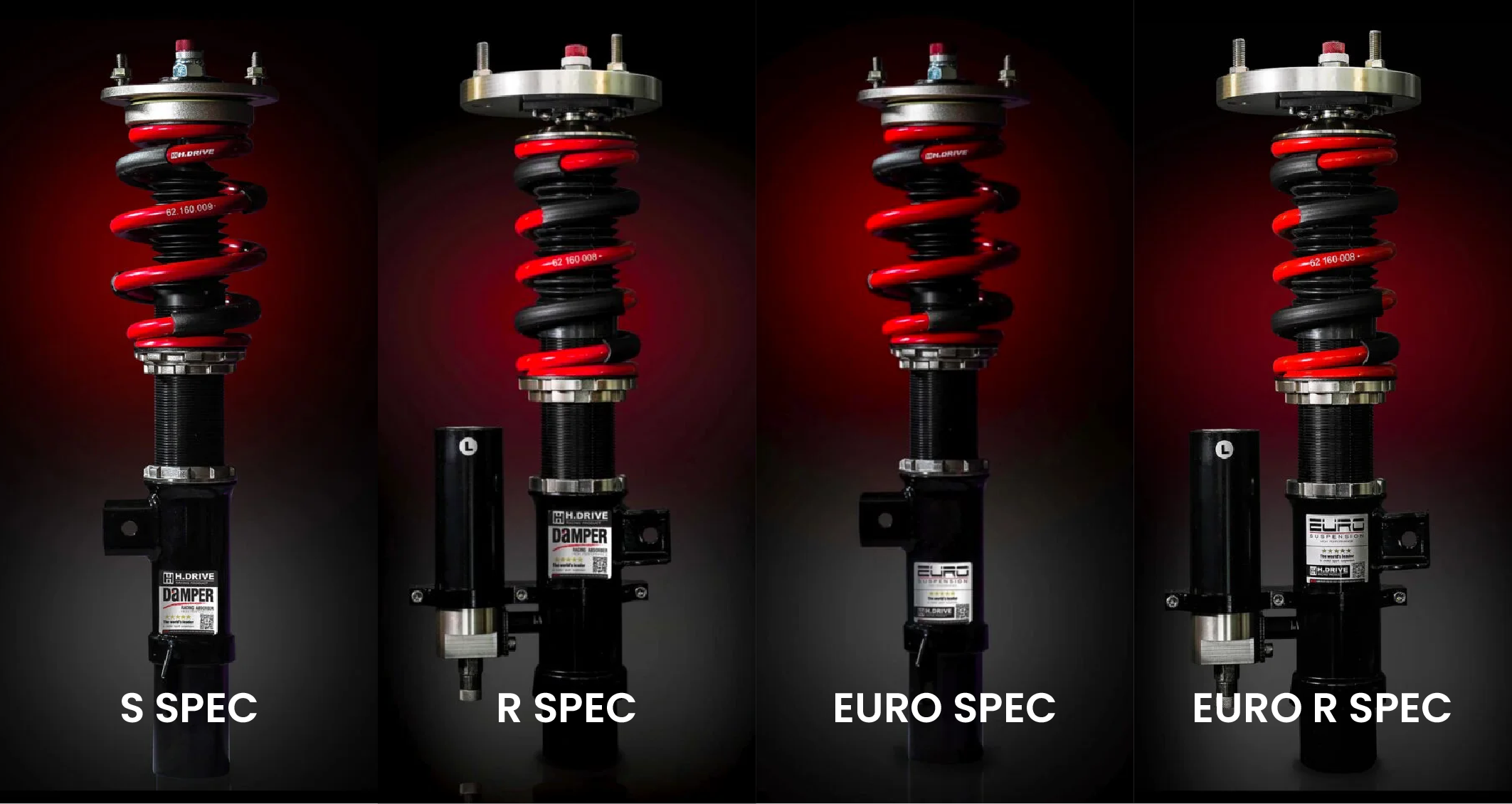The F56 generation Mini has quietly become one of the most rewarding hot hatches to tune. With BMW's proven B48 and B46 turbocharged engines under the bonnet, these pocket rockets offer serious potential that goes well beyond their cheeky exterior.
Whether you're running a Cooper S or the full-fat JCW, the aftermarket support is excellent and the tuning potential is genuinely impressive. The beauty lies in the fact that even modest modifications can transform these cars from nippy to genuinely rapid – without sacrificing the everyday usability that makes these cars so appealing in the first place.
Stage 1 Tune – The Best Starting Point
Any Mini F56 tuning guide worth its salt starts here: the ECU remap. It's the single most cost-effective modification you can make, and the gains are substantial enough to completely change the character of your car.
A quality Mini Cooper S remap will typically see your car jumping from the stock 189bhp to around 270bhp, with torque leaping leaping to 280lb ft. The JCW responds even better, often breaching 300bhp and 320lb ft of torque with the right tune and quality fuel.
Some packages even offer different power outputs through your existing driving modes. Imagine Eco Pro delivering standard power for economy runs or tricky weather conditions, Normal providing a light remap for daily driving, and Sport unleashing maximum attack – all switchable instantly.

For those still under factory warranty, the UK-based Bluespark piggyback unit offers impressive gains whilst maintaining an element of discretion. It's a proven option that can be easily removed if needed, making it ideal for lease cars or anyone wanting to keep their factory warranty intact and options open. Best of all, they offer a 30-day money back guarantee.
The beauty of a stage 1 tune isn't just the headline figures. You'll get a broader torque band, crisper throttle response, and the kind of mid-range punch that makes overtaking effortless, improvements you’ll feel on every drive, not just when your hair is on fire.
Breathing Better – Intake & Cooling
The stock intake system on the F56 is decent by OEM standards, but there's still room for improvement. An upgraded induction kit will sharpen throttle response and give you that satisfying turbo whoosh, especially when paired with a remap – though the power gains are modest on their own. At ML Performance, we recommend these Intake Systems:
- MST Performance MINI B38 B48 F55 F56 F57 Intake Kit (Inc. Cooper, Cooper S & JCW)
- GruppeM Ram Air Intake System Mini F54 F55 F56 F57 F60 Cooper S John Cooper Works

You'll see bigger returns with an intercooler upgrade. The stock unit is adequate for standard power levels, but it heat-soaks quickly under sustained load. If you're choosing between the two, prioritise the intercooler first. The temperature drop from a decent aftermarket unit will help maintain consistent power and protect your engine when you're pushing hard. We recommend the AIRTEC MINI F56 JCW Intercooler Upgrade.

Sound & Flow – Exhaust Options

Exhaust upgrades serve dual purposes on the F56: they improve flow for more power and give your Mini a proper soundtrack. The stock system is reasonably free-flowing, but there are clear gains to be had.
A quality cat-back system will liberate a few extra horses whilst giving you that distinctive turbo flutter and deeper exhaust note. Switchable exhaust systems have become increasingly popular – from Mini's own JCW Pro exhaust to various aftermarket alternatives that let you toggle between subtle and aggressive at the touch of a button. We recommend the Scorpion SMN010 Mini Cooper S F56 Resonated Cat-Back Exhaust System.
For more serious gains, you'll want to look at the downpipe – either a high-flow sports cat or a decat option. Road legal Mini JCW exhaust upgrades with sports cats offer the best compromise between performance and MOT compliance. Decat pipes deliver maximum flow but aren't street-legal without proper mapping to manage emissions.
Again, a remap ties it all together.
Chasing Bigger Numbers – Turbo Upgrades

The stock turbo on both the Cooper S and JCW is surprisingly capable, reliably supporting around 300-325bhp with supporting modifications.
But for a serious build you’re going to need a Hybrid turbo. A well-chosen hybrid can support 400bhp+ whilst maintaining decent spool characteristics and reliability.
However, at this level you'll need supporting modifications:
-
Fuelling upgrades – higher-flow injectors and potentially an uprated fuel pump
-
Clutch reinforcement for manual cars, or DSG software for automatics
-
Larger intercooler - becomes absolutely essential
-
Internal engine strengthening may be required for sustained high power
This level of modification takes your Mini to the next level, but it's a significant investment that needs careful planning. FYI – the JCW runs a slightly lower compression ratio and uses some forged components from stock, but it's better safe than sorry when chasing the big numbers.
Handling the Power – Suspension & Brake Mods
More power needs better handling, and thankfully the F56 platform responds brilliantly to suspension upgrades. Coilovers offer the ultimate in adjustability, returning some of that trademark Mini adjustability and responsiveness of earlier generations, but quality lowering springs paired with uprated dampers can deliver excellent results for less outlay.
Just remember to double-check whether your car is equipped with adaptive damping before placing an order, as there are specific parts for with or without. If you’re unsure contact us and we can help.

Don't overlook the fundamentals: Many F56s come on 18" wheels with runflat tyres as standard. Switching to a quality UHP summer tyre will transform both handling precision and ride comfort. The steering response alone is worth the swap – just keep a can of tyre foam handy for emergencies. Our choice would be the Bridgestone Potenza Sport.
For serious handling improvements, it cannot be overstated the difference a Wavetrac limited slip differential makes. It transforms corner exit traction and ensures the car is much more predictable at the limit and at full throttle. With 300bhp going through the front wheels, torque steer is inevitable.
The JCW already comes with outstanding four-piston Brembo calipers, but even these benefit from upgraded pads and braided lines to further sharpen up pedal feel. For Cooper S models, a full brake upgrade becomes more pressing as power levels climb.
Both cars also chew through their pads quickly because the dynamic stability control uses electronic brake intervention to mimic an aforementioned LSD, so an upgrade is also worth considering on durability grounds.
Essential brake upgrades and parts:
Reliability & Weak Points to Watch

Unlike the earlier fragile R53 and R56 generations, the F56 platform has been built properly and regularly features near the top of reliability surveys. One of the key contributors is the B48 engine, which is essentially the B58 with two cylinders cut off.
A BMW unit, it also features in the likes of the 330e, where it produces 273bhp. Such headroom gives you the peace of mind that despite a remap unleashing another 35-40 per cent more power, you can sleep soundly at night.
The only genuine concern is for cars equipped with the early 6-speed automatic gearbox, which is torque-limited and may struggle with big power gains. The later 8-speed unit is far more robust and can handle serious torque without issue – worth checking which generation you have before planning major upgrades.
Otherwise, just consider having more frequent oil changes on a remapped car, and be sympathetic until all the fluids are warm.
The Bottom Line

With BMW's solid engineering underneath and excellent aftermarket support, the F56 Mini John Cooper Works and Cooper S can be transformed into genuinely quick machines.
Just how quick? The limited-run GP3 demonstrates the platform's potential perfectly – with its 306bhp tune, it'll dispatch 0-60mph in 5.2 seconds, pass 100mph in just 10.8, and pull strongly to 164mph. Once rolling, a tweaked F56 would give a BMW M140i a serious shock, for a fraction of the price. Throw in some handling mods, and you’ll not be far behind the GP’s 7:56:69 Nürburgring Nordschleife time.
The key is matching your modifications to your budget, goals, and how you actually use the car. Start with the fundamentals – a quality remap, decent intercooler, and basic maintenance – then build from there. Done right, you'll have a car that's rapid enough to embarrass much more expensive machinery whilst still being practical enough to use every day.
Don't forget the visual side: The F56 platform offers extensive styling options, from Mini's own JCW Pro aerokits and de-chrome packages to more aggressive options from specialists like Maxton Design. Sometimes looking the part is half the battle.
Get In Touch
Ready to unlock your Mini's potential?
Browse ML Performance's range of ECU upgrades, intercoolers, and exhaust systems designed specifically for the F56 platform. As ever, Xatrix Surrey and Xatrix Bradford are on hand to transform your F56 JCW or Cooper S.

































